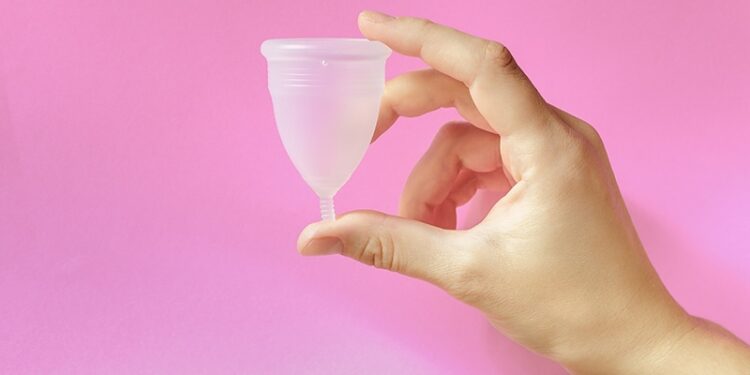A new study published in the journal Contraception and Reproductive Medicine has identified a possible association between menstrual cup use and an increased risk for intrauterine device (IUD) displacement. The research, conducted in France, was co-authored by general practitioner Roxane Liard, MD, who shared key insights into the findings.
The idea for the study emerged from observations made during routine care. According to Liard, a colleague — Juliette Claire — began noticing that several patients who used menstrual cups also presented with displaced IUDs during follow-up visits. “In some cases, the IUD strings may have been unintentionally pulled during menstrual cup removal; in others, the device was simply positioned too low in the uterus,” Liard said. “I had also seen similar cases among my own patients.”
Recognizing a gap in the literature, Liard and lead investigator Hervé Picard, MD, reviewed existing studies and found very limited and methodologically inconsistent data on the topic. “There were few studies, and those that existed had significant bias,” she noted. This led the team to launch a prospective study to explore whether menstrual cup use could indeed increase the risk for IUD displacement.
2.6-Fold Increased Risk With Cup Use
Between March 2020 and May 2021, researchers enrolled 747 women — most of them young and nulliparous — during routine visits for annual IUD follow-up, pelvic pain, or suspected IUD expulsion. Each participant underwent a transvaginal ultrasound to verify IUD placement and completed a detailed questionnaire covering age, weight, IUD type and insertion date, prior expulsions or surgical abortions, and menstrual cup use, including frequency, removal technique, and whether suction was released before removal.
The findings were notable: 7% of the IUDs were found to be displaced. Women who had used a menstrual cup at least once had a 2.6 times higher risk for IUD displacement or expulsion than those who had never used one. Among nonusers, 5% experienced displacement, while the rate rose to 15% among women who had used a cup. The risk appeared unrelated to frequency of use — displacement could occur even after the first use.
Displacement or expulsion of an IUD can compromise contraceptive efficacy and may cause discomfort or pain. These findings raise important clinical considerations for counseling patients on menstrual hygiene options while using an IUD.
Clinical Implications
In addition to the association with menstrual cup use, the study reaffirmed other previously recognized risk factors. Copper IUDs were associated with a fourfold higher risk for displacement than hormonal IUDs, though the reasons for this difference remain unclear. A history of prior IUD expulsion was linked to a sixfold increased risk for recurrence. Interestingly, BMI and pregnancy history — commonly cited in earlier studies — were not significant risk factors in this cohort.
As a result of these findings, participating clinics adjusted their counseling practices. According to Liard, general practitioners at these centers now routinely ask about menstrual cup use before IUD placement and offer targeted guidance. Patients are advised to break the suction seal before removing the cup and, if possible, to pull from the stem rather than the base to minimize the chance of dislodging the IUD strings.
“This isn’t a call to avoid menstrual cups altogether but rather to be vigilant,” Liard explained. “If a patient experiences pain or unusual symptoms after cup removal, we recommend checking string length and, if needed, performing an ultrasound to assess IUD position.”
This story was translated from Medscape’s French edition.
Source link : https://www.medscape.com/viewarticle/menstrual-cup-use-linked-increased-iud-displacement-risk-2025a1000iqw?src=rss
Author :
Publish date : 2025-07-16 03:33:00
Copyright for syndicated content belongs to the linked Source.











